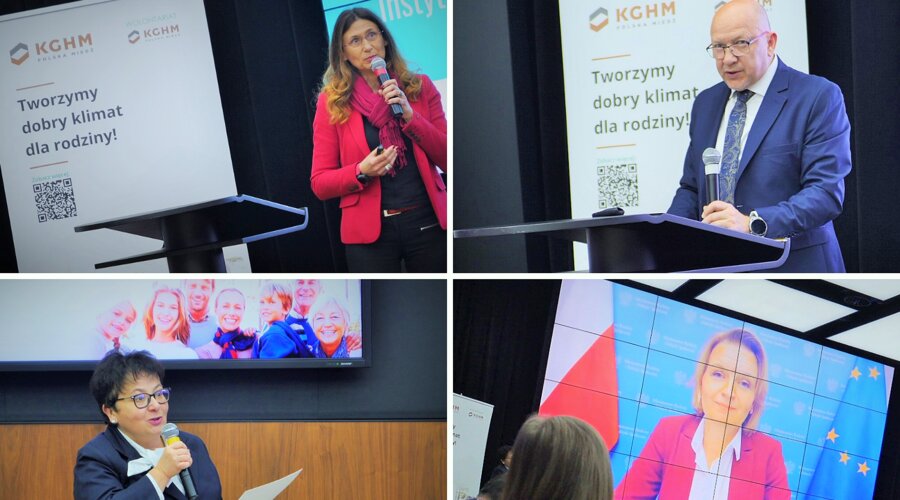Investing in employees and their families - the next edition of the "Have an Impact" Conference is over
What is the cost of an employee who sees their work as meaningless? Can only the big and rich afford ESG? Is investment in employees and their families already an unavoidable necessity for employers? These questions were answered by business representatives, local government officials and representatives of non-governmental organisations during the 3rd CSR "Having an Impact" Conference co-organised by KGHM.
"In KGHM we pursue a 4E strategy. And we have another important e for us, which is empathy. Caring for the local community or the environment has been a natural need for years, which we have been successfully fulfilling. For KGHM, therefore, ESG issues are not just another challenge, but a spur to do even more in this area. We have just adopted an ambitious Climate Policy that will affect the entire Copper Belt. This is a commitment to the entire workforce and to the people of the region", said Marcin Chludziński, President of the Management Board of KGHM Polska Miedź S.A.
The theme of the meeting was the development of ESG regulation and the impact on the transformation of corporate social responsibility. Due to the increasing role of ESG (Environment, Social, Governance) CSR has become a measurable, investor-rated part of business.
"When planning business strategies, it is worth creating solutions to support employees, including facilitating the reconciliation of family and professional life. I think it is worth considering extending ESG regulation to family policies. KGHM is an example of a comprehensive approach in business, which also carries out very diverse activities for the benefit of employees and their loved ones", said Barbara Socha, Deputy Minister of Family and Social Policy and Government Representative for Demographic Policy. The deputy minister added that the importance of ESG as a measurable and assessable part of business is growing.
According to the panellists, the pandemic has accelerated technological transformation, which translates into social transformation. "This means changes in the labour market and new challenges: the risk of digital exclusion, the need to develop new competences, the need to change lifestyles in the face of demographic challenges. Evolution was also accelerated by the pandemic. It is employees who are most often affected by the results of change, such as approaches to hybrid working, remote teaching of children and young people or restructuring processes" - said Zofia Dzik, President of the Humanites Institute.
At the conference, KGHM presented this year's publication on corporate social responsibility: "60 good CSR practices for the 60the Anniversary of KGHM". This is a description of activities and examples of involvement of the Company's employees in voluntary actions and aid for the residents of the Copper Belt.
More than 200 people took part in this year's conference organised by the Polish Copper Employers' Association and KGHM in cooperation with the Humanites Institute. They were representatives of the government, capital market, investors, large and small business, local governments and NGOs. Due to the pandemic situation, the meeting was held in an online format.



